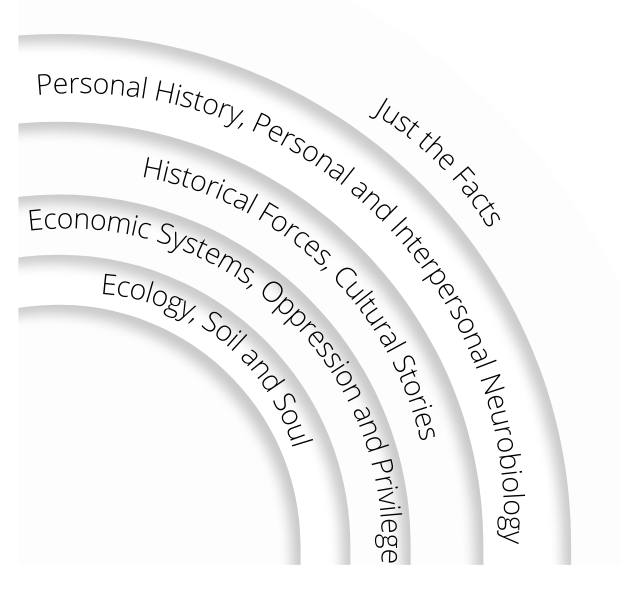Map Step 1 Step 2 Step 3 Step 4 Step 5 Step 6 Step 7
Step 3
Spinning “Just the Facts” into Gold
 Step 3 on the Generative Conflict Map is about deepening into history and context. Police or scientific investigations bent on uncovering “objective facts” often generate cultural stories that are, in the long term and the big picture, profoundly untrue. They might discern only a superficial or incidental truth, while leaving deeper truths invisible.
Step 3 on the Generative Conflict Map is about deepening into history and context. Police or scientific investigations bent on uncovering “objective facts” often generate cultural stories that are, in the long term and the big picture, profoundly untrue. They might discern only a superficial or incidental truth, while leaving deeper truths invisible.
Investigating a case of property crime, for example, might seem like a simple inquiry into “Who dun it?” But any “facts of the case” discerned at this level are likely to eliminate awareness of race, gender and class-based relationships with property, and the theft of bodies, land and labour on larger timescales. People in conflict can be encouraged to give their stories a better spin by reaching down into an inquiry:
- What is your story – “just the facts”?
- What are watershed moments in this narrative when things went wrong for you? Consider the deeper, older cultural context, as well as identifying what one person did or didn’t do to you.
- What personal narratives came alive in these moments? What deep childhood wounds were touched, that want to be shared?
- What cultural narratives came alive in this moment? What experiences of non-belonging imposed by dominant cultural values did this moment trigger in you?
- What is your deepest desire for a happy ending? What is your greatest fear? Where does your inner truing mechanism feel out of alignment with truth that could be, that should be? Is the story “coming true” here one you have already lived or read? Do you feel like you already know “Who dun it” and how it ends? What would invite you to change that?
- How is the story impacting your life, your livelihood and your aliveness? Does it make holes in the weave of attachment between you and the biosphere? Does it help to weave a better web, with more belonging in it? Could both a weaving and unweaving be happening simultaneously or sequentially?
By unearthing deeper, older, slower-moving, softer-speaking truths, we can begin to see a bigger picture and tell a better story. We go from “just the facts” to spinning the gold of stories with capacity for sustainable relationships and transformative change.
We may wish to exit from the map at this point, and share a conversation with the people or community we are in conflict with. We might find, through the process, we become deeply curious about others’ stories, too.
